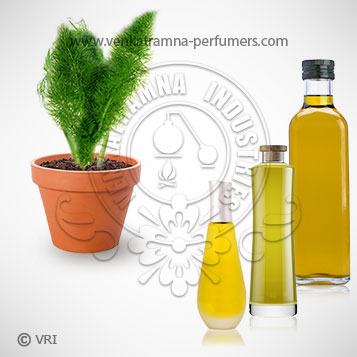
| Botanical Name | Artemisia Pallens |
| Common Name | Davana |
| Country of Origin | India |
| Solubility | Insoluble in water |
| Specific Gravity | 0.9394 – 0.9560 @ 20°C |
| Optical Rotation | +32° to +60°(25º C) |
| Refrective Index | 1,4810 – 1,4917 (20ºC) |
| PlantPart | Stems and Leaves |
| Bland With | Davana Essential Oil can be easily blended with most essential oils |
| CAS No | 8016-03-3 |
| Flash Point | 94° C |
| Extraction Method | Steam Distilled |
Davana is a small plant with the oil coming from the stems and leaves through distillation. The oil is used widely in perfumery industry. It has been widely used in Indian folk medicine for the treatment of diabetes mellitus. This plant is accredited with antihelmintic, antipyretic and tonic properties and also considered as a good fodder. The oil possesses antispasmodic, antibacterial, antifungal and stimulant properties. The plant has been screened for the antimicrobial, antidiabetic, antinociceptive and wound healing activity. The current study deals with the Phytochemical and Pharmacological of Artemisia pallens.
Each day, the faithful in India offer Davana blossoms to Shiva, the god of Transformation. The flowers remain on his altar throughout the day and are removed in the evening. Genus Artemisia (Asteraceae) popularly known as “Sage Brush” or “Worm wood” is bitter aromatics. Artemisia is the largest genus comprising of 400 species widely distributed in South Africa and South America, and 34 species are found in India. This genus is named in honor of Artemis the Greek goddess of chastity. Some of them are sources of volatile oils. Sesquiterpene lactones are known to be present in almost all species.
Color : Brownish with Tealike, Fruity Odor,
Aroma : woodsy, balsamic odor.
acetophenone, Davanone, Davan-Ether, Davana Furane and linalool
Davana Essential Oil is popular in the perfumery industry where it is capable of making a scent unique to the individual. It also has some history in aromatherapy as being a fantastic aphrodisiac and as an agent to combat anxiety. Davana Oil is also regarded as being anti-infectious, soothing to dry rough skin, and stimulating to the endocrine system. Artemisia species are invariably found as small fragrant shrubs or herbs and most of them yield essential oils. Some of these oils are used as medicine such as vermifuge, stimulant and in perfumery, etc. The leaves of some species are used as culinary herbs. The plants themselves are popular among gardeners as cultivated ornamentals. COMMON USAGE • Heals wounds • Fights infections • Emmenagogue • Eases breathing • Relaxes the body • Speeds up healing